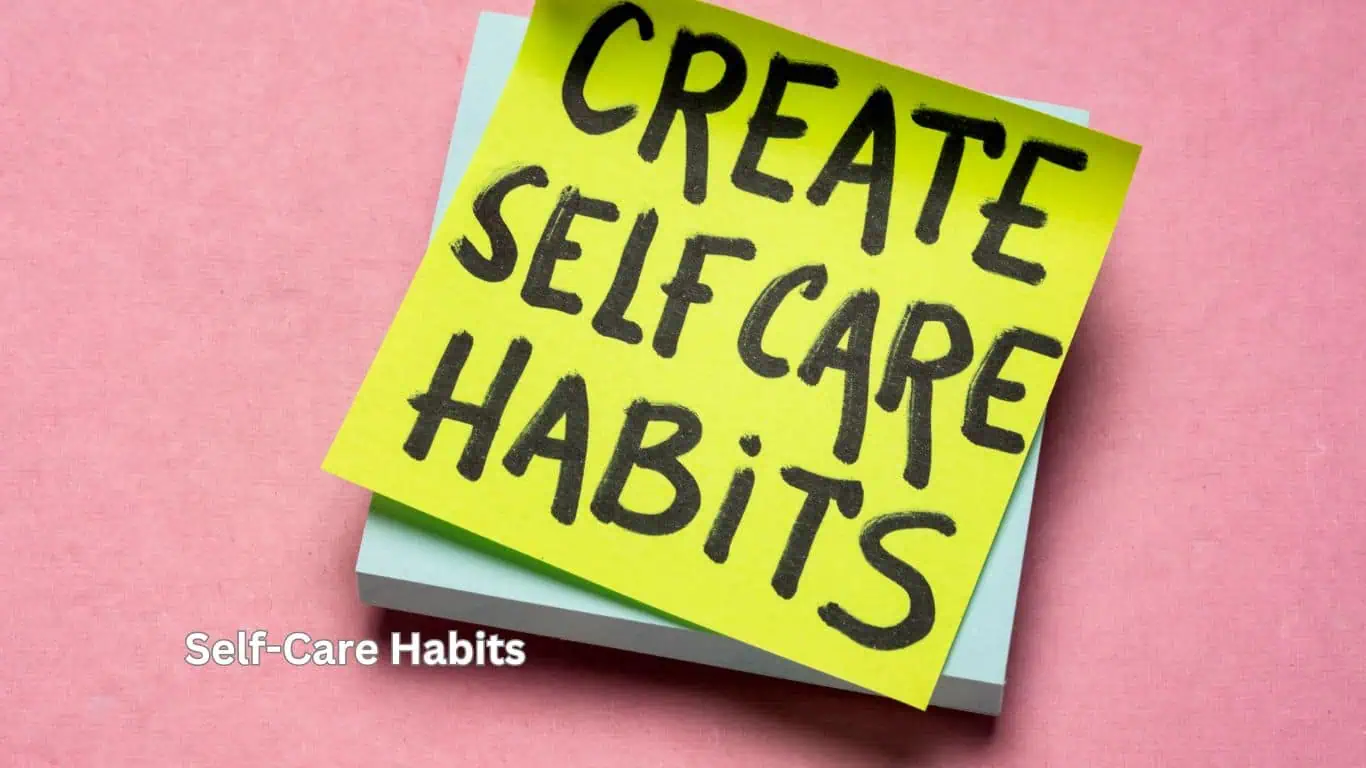Nurturing Your Well-Being: A Self-Care Guide for Gluten-Free Living
Living gluten-free comes with its own set of challenges. According to this article published by Beyondceliac.org, individuals with celiac disease report higher levels of stress, anxiety, and social isolation compared to the general population. These challenges arise from constant vigilance about cross-contamination, limited dining options, and the emotional toll of feeling “different.”
Understanding these hurdles makes self-care not just a luxury, but a necessity. You can reclaim balance and joy in your gluten-free lifestyle by creating routines that prioritize your physical, emotional, and mental well-being. This guide offers actionable steps to help you thrive.
Understanding Self-Care in the Context of a Gluten-Free Lifestyle
Self-care is more than just a buzzword. It’s a fundamental aspect of maintaining a Balanced Life. For those following a gluten-free diet, self-care takes on added significance. The challenges of navigating a world filled with gluten-containing products can be stressful and emotionally taxing. That’s why it’s essential to develop a robust Self Care Routine that addresses your unique needs.
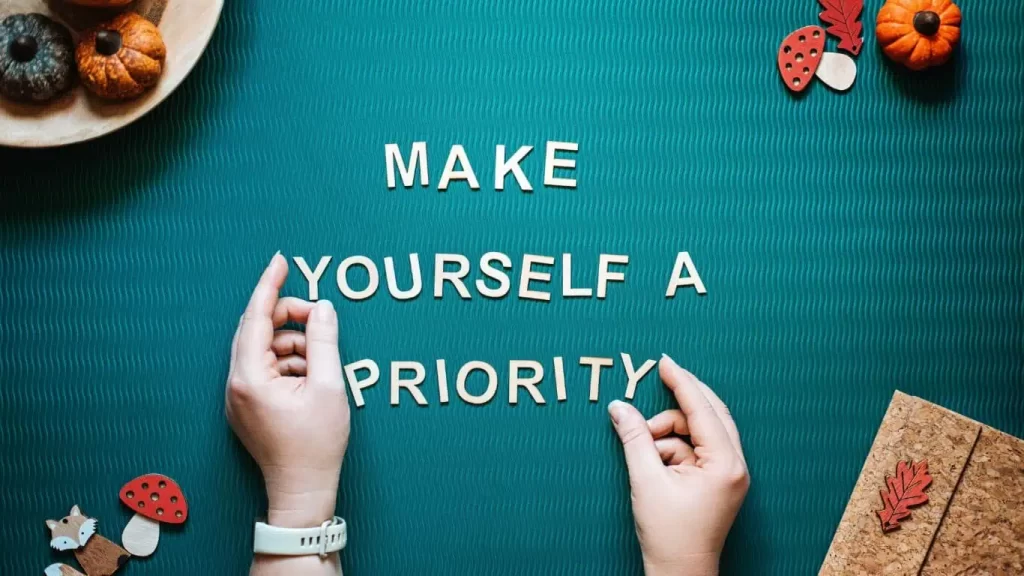
Self care tips
The Physical Aspect: Nourishing Your Gluten-Free Body
- Meal Planning and Preparation
One of the most important Self Care Things To Do for gluten-free individuals is to plan and prepare meals. This ensures that you always have safe, nutritious options available. Consider dedicating time each week to meal prep, which can reduce stress and save time during busy weekdays. - Exploring New Recipes
Turn your dietary restrictions into an opportunity for culinary exploration. Trying new gluten-free recipes can be a form of Self Healing Ideas that nourishes both body and soul. It’s a chance to discover new flavors and textures while taking care of your nutritional needs. - Regular Exercise
Physical activity is crucial for everyone, but it can be especially beneficial for those with gluten sensitivities. Exercise can help improve digestion, boost mood, and reduce stress. Find activities you enjoy, whether it’s yoga, hiking, or dancing, and make them a regular part of your Self Care Routine.
The Mental and Emotional Aspects: Cultivating Inner Peace
- Mindfulness and Meditation
Practicing mindfulness can be one of the most effective Things To Do For Your Soul. It helps reduce stress, improve focus, and cultivate a sense of inner calm. Consider incorporating short meditation sessions into your daily routine, even if it’s just for a few minutes each day. - Journaling
A Self Care Bullet Journal can be an excellent tool for processing emotions, tracking symptoms, and setting goals. Use it to record your gluten-free journey, noting challenges, successes, and Ideas for improvement. - Connecting with Others
Building a support network is crucial. Join gluten-free support groups, either online or in-person, to share experiences and Ask For Help when needed. Remember, you’re not alone in this journey.
Download your Free Self Care Checklist
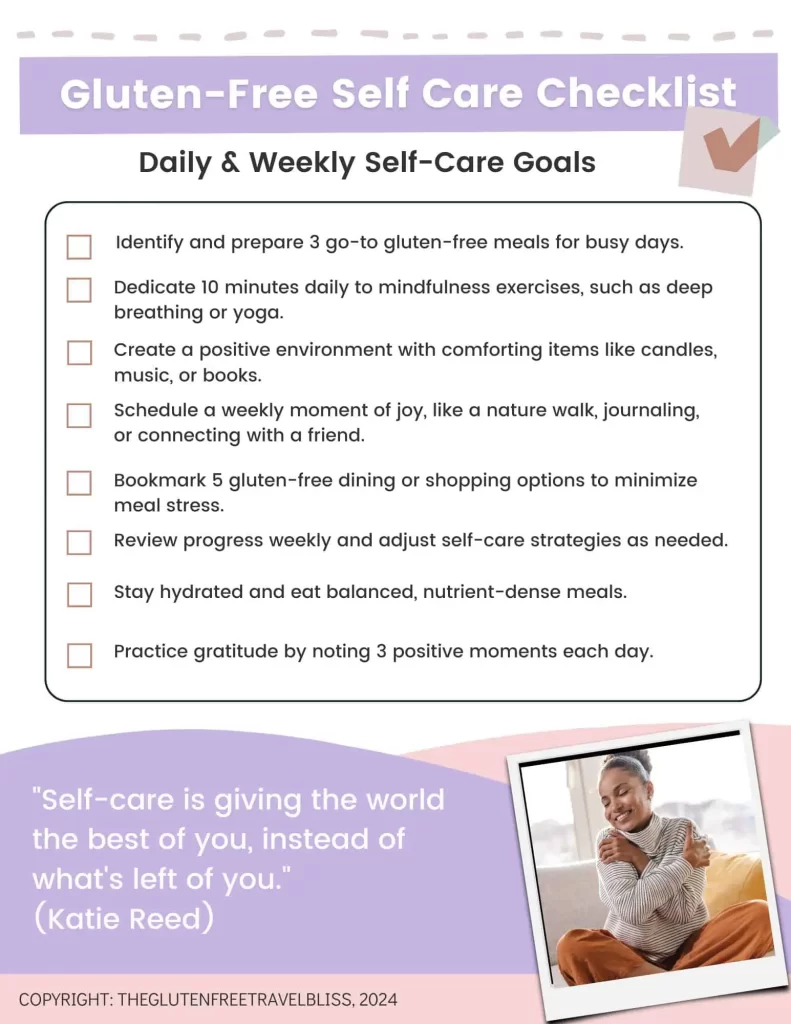
6 Steps to Build a Gluten-Free Self-Care Routine
Now that we’ve covered the basics, let’s explore some specific Self Care Activities that can enhance your gluten-free lifestyle:
1. Develop a Morning Ritual
Start your day with intention by creating a morning routine that sets a positive tone. This could include:
- A gentle stretching or yoga session
- A nourishing gluten-free breakfast
- Reading inspirational Care Quotes or practicing Positive Self Affirmations
2. Create a Relaxing Environment
Your surroundings can significantly impact your well-being. Consider these Self Care Ideas:
- Designate a gluten-free safe space in your home where you can relax without worry
- Use essential oils or candles with calming scents
- Invest in comfortable, cozy furnishings that make you feel at ease
3. Prioritize Sleep
Quality sleep is essential for Emotional Health and overall well-being. Establish a bedtime routine that helps you wind down and prepare for restful sleep. This might include:
- Avoiding screens for an hour before bed
- Reading a book or listening to soothing music
- Practicing relaxation techniques like deep breathing or progressive muscle relaxation
4. Practice Self-Compassion
Living gluten-free can be challenging, and it’s important to be kind to yourself. Here are some ways to practice self-compassion:
- Acknowledge your efforts in maintaining a gluten-free lifestyle
- Forgive yourself if you accidentally consume gluten
- Celebrate your successes, no matter how small
5. Engage in Creative Activities
Creativity can be a powerful form of self-care. Consider these Self Care Things To Do:
- Try gluten-free baking or cooking experiments
- Start a craft project or take up a new hobby
- Express yourself through art, music, or writing
6. Regular Self-Check-Ins
Make time for regular self-reflection to assess your physical and emotional well-being. This can be part of your Best Self Care Routine:
- Set aside time each week for a personal check-in
- Use Making Lists to track your goals and progress
- Adjust your self-care strategies as needed based on your current needs
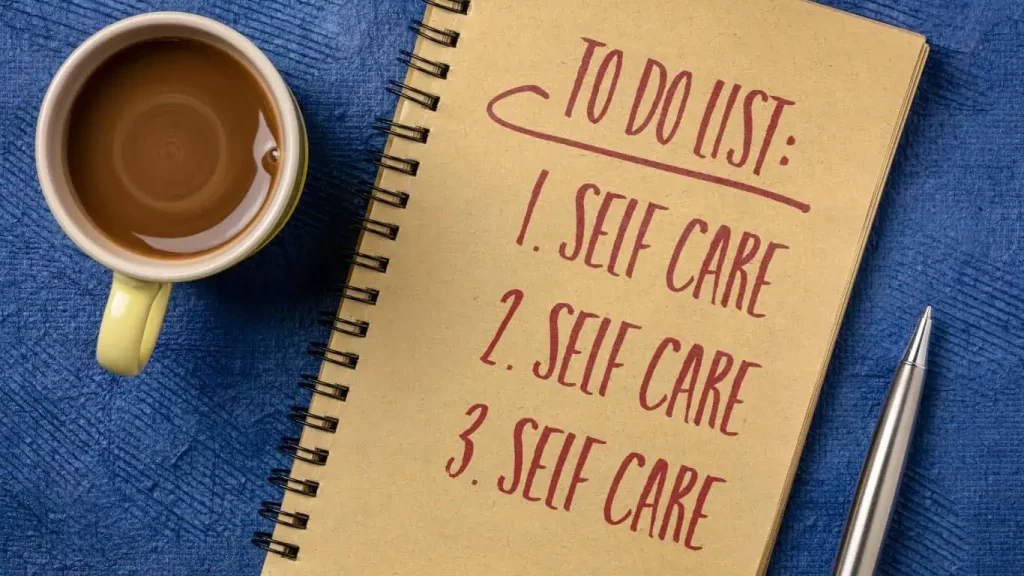
Self-Care Tips
Overcoming Challenges and Staying Motivated
Maintaining a consistent self-care practice can be challenging, especially when dealing with the complexities of a gluten-free lifestyle. Here are some tips for staying on track:
1. Set Realistic Goals
When it comes to Self Improvement Tips, it’s important to set achievable goals. Start small and gradually build up your self-care routine. This approach is more sustainable and less likely to lead to burnout.
2. Find Your Motivation
Identify what drives you to Take Care Of Yourself. Is it to feel better physically? To have more energy for your loved ones? To pursue your passions? Understanding your “why” can provide powerful Personal Motivation.
3. Seek Support
Don’t hesitate to reach out for support when needed. This could mean talking to a friend, family member, or even considering Life Coaching for personalized guidance. Remember, Ask For Help is a sign of strength, not weakness.
4. Practice Flexibility
Your self-care needs may change over time, and that’s okay. Be flexible and willing to adjust your routine as necessary. What works for you today might not work tomorrow, and adapting is key to long-term success.
5. Celebrate Progress
Take time to Reward Yourself for sticking to your self-care commitments. Celebrate both big and small victories along your gluten-free journey. This positive reinforcement can help maintain your motivation.
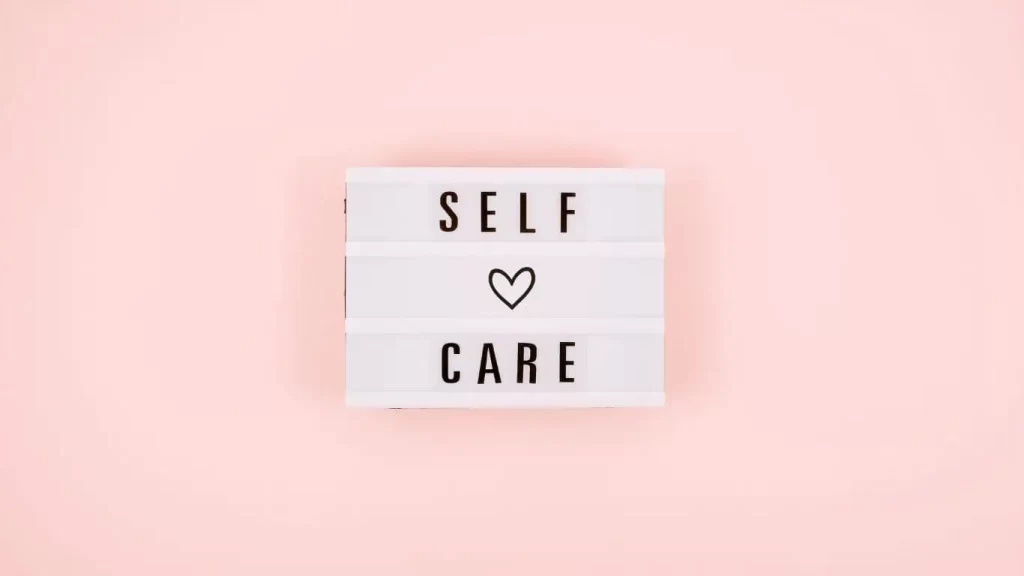
Self-Care Tips
The Role of Mindset in Self-Care
Your mindset plays a crucial role in how you approach self-care and your gluten-free lifestyle. Cultivating a positive mindset can make a significant difference in your overall well-being.
1. Practice Gratitude
Take time each day to reflect on what you’re grateful for. This simple practice can shift your focus from the challenges of gluten-free living to the positive aspects of your life.
2. Reframe Challenges
Instead of viewing gluten-free living as a limitation, try to see it as an opportunity for growth and creativity. This shift in perspective can transform your experience.
3. Use Positive Self-Talk
The way you talk to yourself matters. Replace negative self-talk with Positive Self Affirmations. For example, instead of “This is too hard,” try “I am capable of handling challenges.”
4. Visualize Success
Spend time visualizing yourself thriving in your gluten-free lifestyle. This mental practice can boost your confidence and motivation.
Putting It All Together: Creating Your Personalized Self-Care Plan
Now that we’ve explored various aspects of self-care for gluten-free living, it’s time to create your personalized plan. Here’s how to get started:
- Assess Your Current Situation: Take stock of your current self-care practices and identify areas that need improvement.
- Set Priorities: Determine which aspects of self-care are most important to you right now.
- Choose Strategies: Select self-care strategies that resonate with you and fit your lifestyle.
- Create a Schedule: Decide when and how often you’ll engage in each self-care activity.
- Track Progress: Use a Self Care Bullet Journal or app to monitor your progress and make adjustments as needed.
- Be Patient: Remember that developing new habits takes time. Be patient with yourself as you implement your self-care plan.
Conclusion: Embracing Self-Care as a Gluten-Free Individual
Living a gluten-free lifestyle comes with its unique challenges, but it also offers opportunities for growth, self-discovery, and enhanced well-being. By prioritizing self-care, you’re not just managing your diet; you’re nurturing your entire being.
Remember, self-care is not selfish—it’s essential. It’s about Taking Care Of Yourself so that you can show up fully in all areas of your life. Whether it’s through Self Care Activities, practicing Positive Self Affirmations, or simply taking a moment for a mental Pep Talk, every act of self-care contributes to your overall health and happiness.
As you continue on your gluten-free journey, let self-care be your constant companion. Embrace the Self Healing Ideas that resonate with you, stay open to new Self Care Ideas, and always remember that you’re worthy of care, compassion, and a life filled with Vie Motivation.
Whether you’re gluten-free, managing multiple dietary restrictions, or simply seeking balance, the key is compassion—for yourself and your journey. Start small, stay consistent, and don’t hesitate to lean on resources and communities for support. You deserve to thrive.
Share Your Journey!
I’d love to hear how you incorporate self-care into your gluten-free lifestyle!
- Leave a Comment: Share your favorite self-care tip or a specific way you’ve found balance in your gluten-free routine.
- Join the Conversation: Tag me on Instagram or Pinterest @GlutenFreeTravelBliss and share a photo of how you’re putting self-care into action—whether it’s a morning ritual, a favorite recipe, or a mindfulness moment.
- Spread the Inspiration: If this checklist or guide has helped you, share it with a friend who might need a little self-care boost. Together, we can create a supportive community that thrives on wellness and balance.

